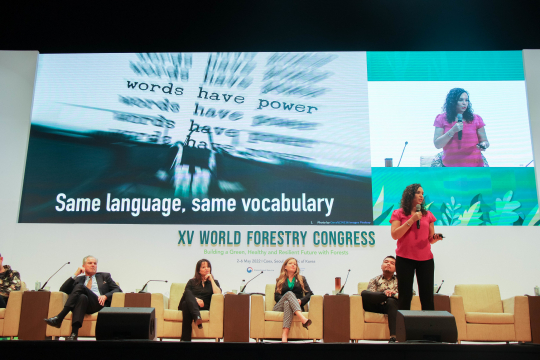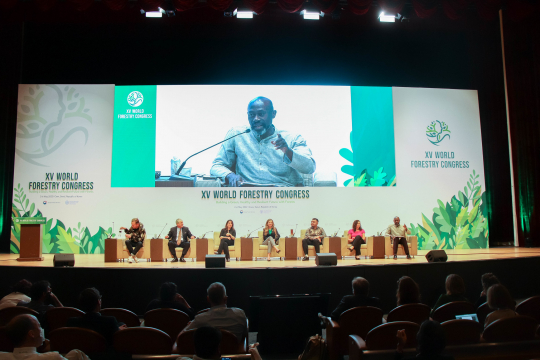During the XV World Forestry Congress held in Seoul, Korea, at the beginning of May, a session called Harnessing the Communication Effect highlighted the role of communication in the forestry and environment sectors. The session aimed at answering the question How can we be brave in our communication about forests to create greater impact and reach broader audiences?
Marianela Arguello L., Communication and Knowledge Management Officer of EfD Central America, was one of the six speakers in this session. She focused her key messages on six basic but fundamental communication aspects to achieve local relevance.
Need to create coalitions
It's necessary to communicate our messages with simplicity and in the language of the people if we want to be understood by our audiences," said Marianela Arguello L.
"We need to listen carefully, know our audiences better, understand the key role of social media platforms and the preferences of people at the local level, and create coalitions to strengthen our voice about the forests, such as the Forest Communicators Networks that exist around the world."
She leads the Latin America and Caribbean Forest and Environmental Communicators Networks (Recofalc, by its Spanish acronym) since 2018, which unites more than 80 members from 18 countries.
Communicates the importance of the forestry sector
"The forest sector needs to strengthen communication with the general public to position forests as a solution to global challenges," said Maria De Cristofaro, Outreach and Capacity Building Officer, of the Forestry Division, of the United Nations Food and Agriculture Organization (FAO).
The session in which the communication topic was included to establish its relevant role for the forestry sector was part of sub-theme 5: Managing and communicating forest information and knowledge.
The XV World Forestry Congress
The XV World Forestry Congress was held from May 2 to 6, in Seoul, Korea, and it was organized by FAO and the Korea Forestry Service. This event united nearly 15,000 people, present and online, from more than 140 countries.
The Seoul Forest Declaration was a result of this Congress. According to Peter Csoka, Associate Secretary-General of the XV WFC, FAO, the Seoul Forest Declaration urges that responsibility for forests should be integrated across institutions, sectors, and stakeholders, underlining that forests transcend political, social, and environmental boundaries.

